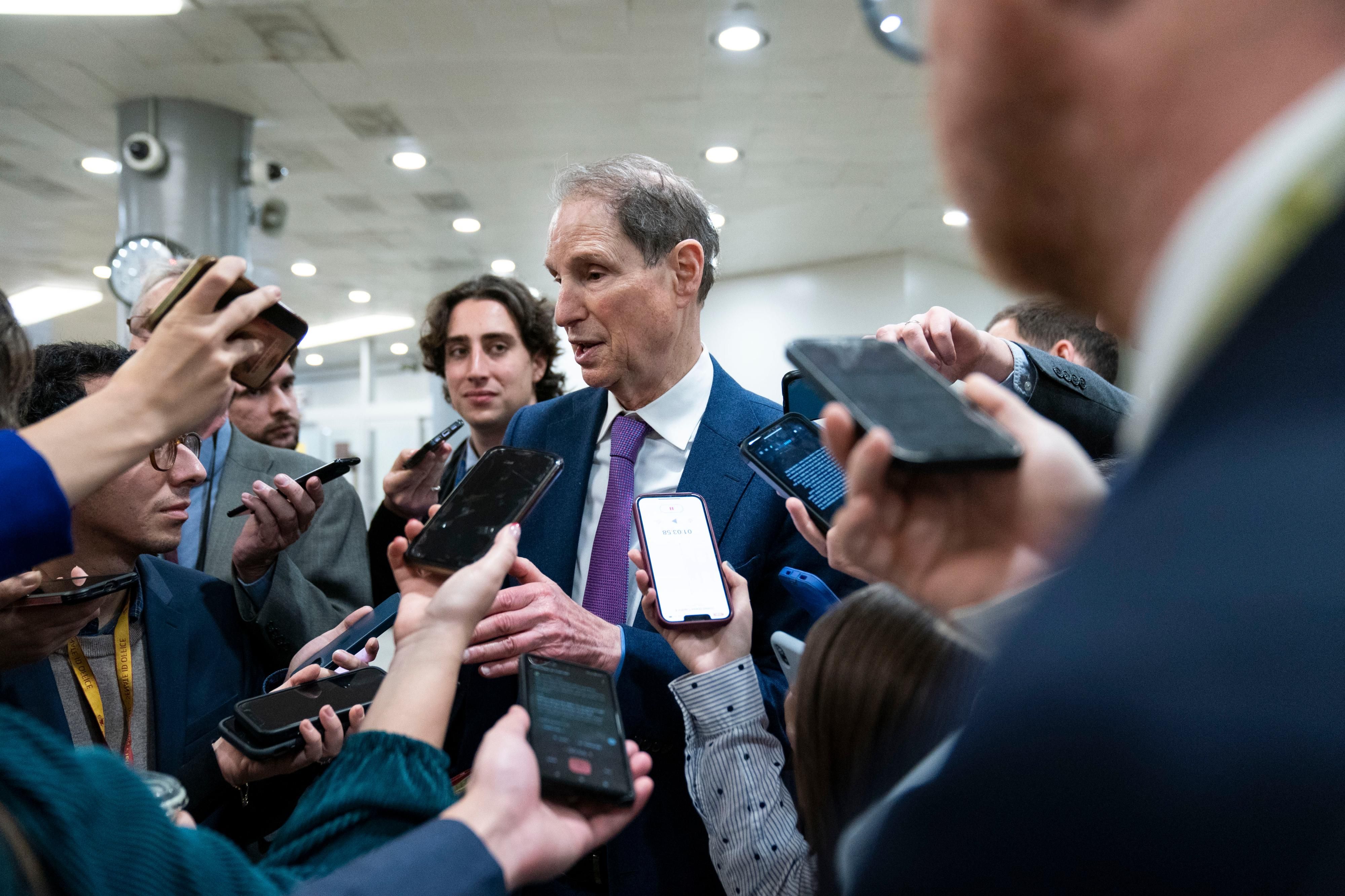
The Democratic chair of the Senate Finance Committee said Wednesday that former President Donald Trump's tax returns—portions of which a House panel has voted to make public—likely resemble those of many other wealthy people in the United States who use accounting gimmicks to lower their tax bills or avoid taxes altogether.
In a statement, Sen. Ron Wyden (D-Ore.) said that "Donald Trump's tax returns exemplify the shortcomings of our tax code and consequences of Republicans' decadeslong fight to gut the [Internal Revenue Service]."
"Putting an end to the games wealthy tax cheats play with their partnerships is going to be a priority going forward."
"These are issues much bigger than Donald Trump," Wyden continued. "Trump's returns likely look similar to those of many other wealthy tax cheats—hundreds of partnership interests, highly questionable deductions, and debts that can be shifted around to wipe out tax liabilities. All of this goes completely unchecked when you're more likely to get struck by lightning than have your hundreds of partnerships audited."
According to a summary of Trump's tax returns that the House Ways and Means Committee released late Tuesday, Trump paid just $750 in federal income taxes in 2016 and 2017 and $0 in 2020—confirming earlier reporting by The New York Times. The former president was able to dramatically lower his tax bill in recent years by making expansive use of deductions and claiming huge business losses to offset his tax liabilities, the newly released document shows.
A separate House Ways and Means Committee report examining the IRS' handling of Trump's tax filings observed that the former president's individual return "included the activities of hundreds of related and pass-through entities, numerous schedules, foreign tax credits, and millions of dollars in [net operating loss] carryforwards."
The House panel stressed that the IRS—which didn't audit Trump's taxes during his first two years in office as required under agency policy—said it didn't pursue certain issues it identified in the former president's returns due to "lack of resources."
"This is why we've fought to give the IRS the resources it needs. It takes skilled examiners to review these types of returns, and the agency needs the staff to go up against the armies of accountants and lawyers the wealthy have at their disposal," Wyden said Wednesday, adding that "additional IRS resources are only one piece of the puzzle."
"We need legislation to simplify the tax code, particularly in the area of partnerships," said the Oregon Democrat. "Putting an end to the games wealthy tax cheats play with their partnerships is going to be a priority going forward."
Jean Ross, a senior fellow and tax expert at the Center for American Progress, echoed Wyden, noting in a statement that "Trump—like many of the ultrawealthy—aggressively used tax dodges not available to the rest of us: structuring income as capital gains that are taxed preferentially and minimizing earnings from work."
"There's still more to be done to level the playing field between taxes paid on wealth and those paid on work and to close the loopholes used by the wealthy to pay little or no tax," Ross said.
This content originally appeared on Common Dreams - Breaking News & Views for the Progressive Community and was authored by Jake Johnson.